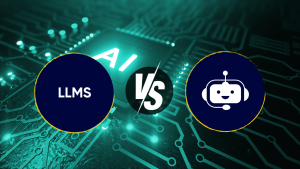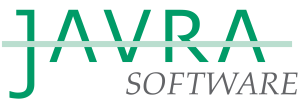
LLMs vs. Agents: How to Choose the Right Solution for Your AI Project
Introduction: Navigating the New AI Frontier The rapid evolution of AI has opened new frontiers for innovation, operational efficiency, and customer engagement. Yet for many business leaders—CEOs, CTOs, and digital strategists—one question often arises: Should we build with Large Language Models (LLMs) or autonomous AI Agents? Understanding the difference between these two AI paradigms isn’t just a matter of tech preference—it’s a strategic decision that can shape the trajectory of your digital transformation. This article demystifies LLMs and AI Agents, helping you choose the right approach based on your business needs, scalability goals, and technical readiness. What Are LLMs and AI Agents? LLMs (Large Language Models) LLMs like OpenAI’s GPT or Meta’s LLaMA are powerful AI systems trained on massive datasets to understand and generate human-like language. They excel at tasks such as: LLMs are reactive—they respond to input prompts and provide intelligent outputs without long-term memory or decision-making autonomy. AI Agents AI Agents go a step further. They use LLMs as a core intelligence but are embedded within a larger framework that includes: Think of LLMs as brilliant advisors and Agents as capable employees—intelligent, proactive, and multi-tasking. LLMs vs. AI Agents: Key Differences Feature Large Language Models (LLMs) AI Agents Functionality Language-based reasoning Task execution + reasoning User Interaction Requires continuous prompting Operates autonomously Memory Stateless (no memory of past interactions) Stateful (remembers context/goals) Complexity Easier to deploy More complex orchestration Best For Search, Q&A, document generation Workflow automation, task delegation When to Choose LLMs? LLMs are ideal when your use case: Use Case: Intelligent Document Search for Legal TeamsA legal firm uses an LLM-powered search assistant to sift through thousands of legal documents. It returns relevant case files and summaries—reducing research time by 70%. Use Case: Marketing Content GeneratorA B2B marketing team uses LLMs to create product descriptions, newsletters, and SEO-friendly blog posts in seconds—at scale. When to Choose AI Agents? AI Agents are better suited when your use case: Use Case: Customer Service AutomationA retail company deploys AI Agents that can resolve shipping issues, process refunds, and escalate complaints—all without human intervention. Use Case: Sales Outreach AutomationSales agents autonomously scan CRM data, prioritize leads, craft emails, and follow up—freeing your human sales team to close deals. Decision Framework: LLM or Agent? Use this checklist to guide your strategy: Question LLM AI Agent Do I need advanced language understanding only? ✅ ❌ Do I want the AI to take actions autonomously? ❌ ✅ Is integration with external/internal tools required? ❌ ✅ Do I need the system to remember and plan over time? ❌ ✅ Am I testing quickly with limited scope or budget? ✅ ❌ Still unsure? Hybrid approaches can use LLMs within Agent frameworks, giving you the best of both worlds. Why Partner with Javra Software? At Javra Software, we bring deep expertise in deploying both LLM- and Agent-based AI systems tailored to your industry and business needs. Whether you’re digitizing a customer experience, optimizing operations, or pioneering a new AI product—we guide you from ideation to implementation. We combine: Let’s Build the Future Together Not sure which path to take for your AI initiative?At Javra Software, we help businesses harness the right AI tools to drive innovation and performance. Contact us today to explore the most strategic fit for your needs.
